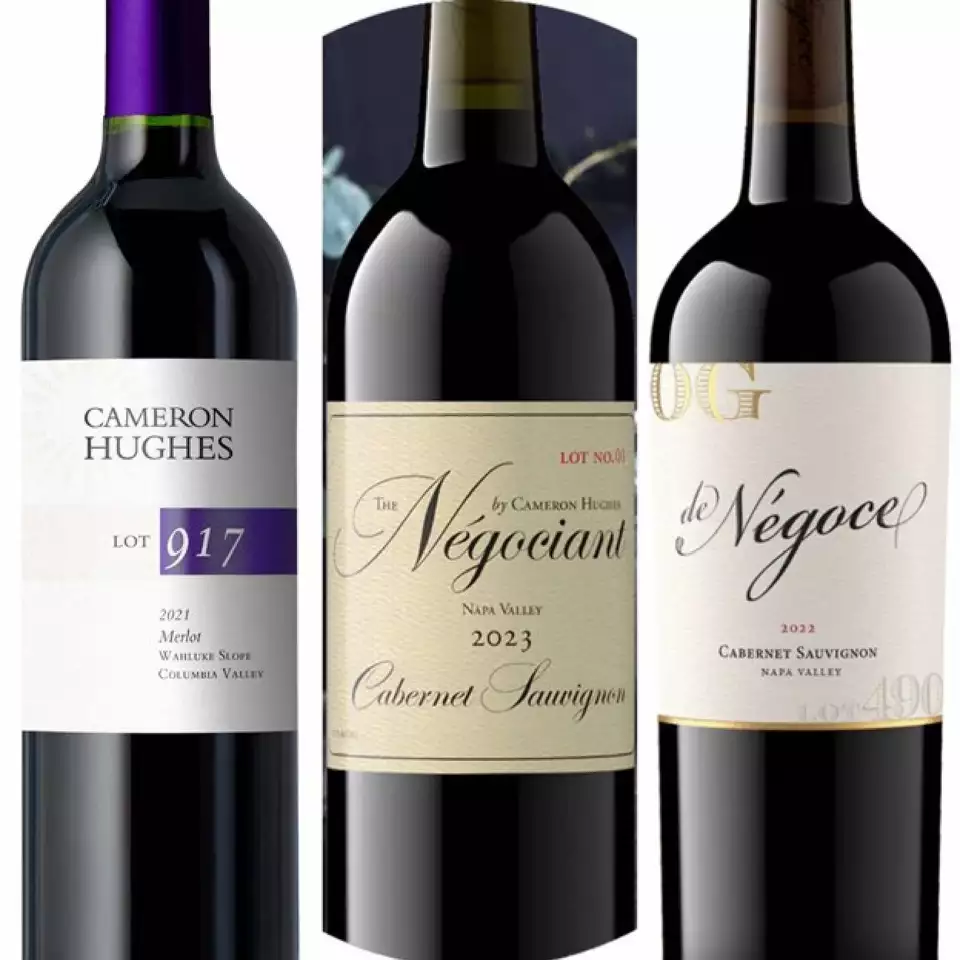Fast, private email that's just for you. Try Fastmail free for up to 30 days.
This ‘Négociant’ Lawsuit Is the Wine Industry Drama I Didn’t Know I Needed
The headline of Esther Mobley’s piece in the San Francisco Chronicle (“Two California wine companies are locked in a legal battle over a French word”) demanded I satisfy my curiosity—which French word could possibly spark a lawsuit—and rewarded me with a delightfully absurd business drama. It helped that, like the protagonists of this story, I’m also a member of Wine Berserkers (though I rarely post outside their annual Berserker Day)—they were familiar characters.
The word, négociant, “refers to a merchant who buys grapes or wine and then bottles it under their own label.” Cameron Hughes is a big name in this arena:
He did it first in the early 2000s under an eponymous company, Cameron Hughes Wine, then with a buzzy startup, De Négoce, and recently revealed his plans to launch a third act, the Négociant.
Hughes now faces a lawsuit from Martin Ray Winery, to whom he sold the De Négoce business last year for $12.5 million. In the complaint filed in federal court in San Francisco, Martin Ray alleges that Hughes’ new label, the Négociant, infringes on the De Négoce trademark and that Hughes has violated a non-compete contract.
My first thought was, yeah, I can see how the brand names could be considered confusingly similar; clever, but brazen. This will not stand, man.
Then we learn that Hughes didn’t come up with the name; he bought it from an existing company. Well, that’s OK, then! An already established name, not one created specifically to cause confusion? Cheeky, but hardly a transgression.
The lawyers were having none of that; Spencer Hosie is an attorney for Ray:
But “it’s not just the use of the word ‘négociant,’ which does have a well established meaning,” Hosie countered. Pointing to the stylized “N,” the curve of the accent mark and the positioning of the text, he argues that the look of the two wine labels is so similar that it must be designed to confuse consumers. “It is manifestly apparent that he simply copied many of the stylized letters on the label,” Hosie said. “It couldn’t be a coincidence.”

Well, that is rather damning, isn’t it? A strikingly similar font, the small change to “The” from “de” … that’s willful infringement! Guilty!
But wait!
Hughes maintains it is just that, because the Négociant label is in fact the same one that Bob Pepi used. He simply added “by Cameron Hughes” below. Hughes also noted that Martin Ray had already changed the De Négoce labels and no longer uses a cursive font.
Wut! The styling was already in use; it wasn’t created to mimic the other. You can’t be held liable for buying someone’s preexisting brand identity—can you?
And, of course, there’s the requisite non-compete agreement:
Included in the sale agreement was a non-compete clause that prohibited Hughes from selling any wine “direct to consumers” for a period of 21 months, Hosie said. Hughes could produce wine and sell it to a wholesaler or distributor, but could not engage in a model like De Négoce’s.
What did Hughes do?
The new company would sell $1,000 “founding memberships,” which could be used as credits for future wine purchases from the Négociant. Hughes claims that because he has not shipped any wine yet, he has not violated his non-compete. “I am in full compliance with those terms as I have sold no wine directly to consumers,” he said.
I love the technically accurate lawyering. You said I couldn’t sell wine. You didn’t say I couldn’t sell the promise to sell wine.
I don’t know if Hughes is guilty of trademark infringement, but he’s certainly toeing the line, complete with a wink and a smirk. Bring on the denouement—this will be one to savor. My wine glass is a-twirl.
⚙︎
Like what you just read?
Get more like it, direct to your inbox. It’s free for you and an ego boost for me. Win-win!
Free, curated, possibly habit-forming. (It’s OK, you can stop anytime.)

